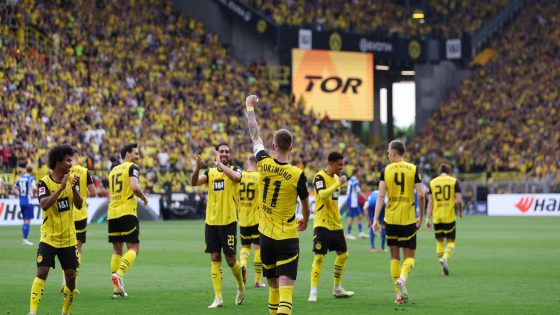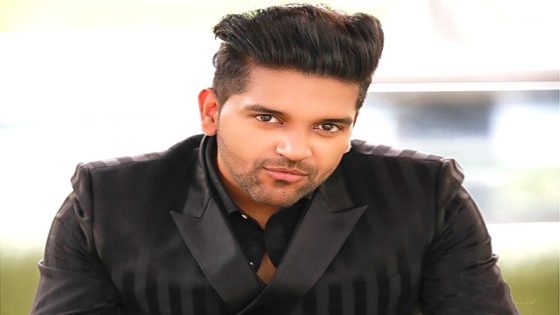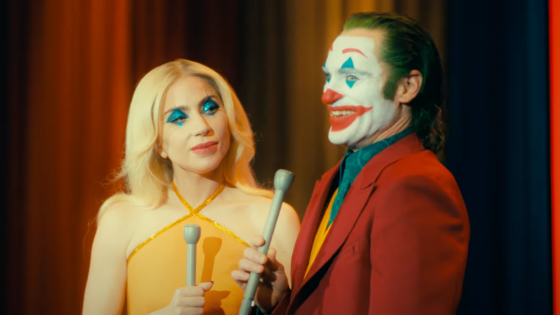Borussia Dortmund, one of Germany’s most successful soccer clubs, is rooted in the industrial Ruhr region and prides itself on retaining its working-class roots, community engagement and anti-establishment mentality.
That’s why, in the week before one of the biggest games in the club’s history, some Dortmund fans are angry about a sponsorship deal with Rheinmetall, a major German weapons producer. Everyone from club officials to lawmakers have weighed in on the move, which has provoked a debate about the normalization of the military in German society. Still, many fans would rather just focus on Dortmund’s appearance in the showcase game of the European season, the Champions League final on Saturday against Real Madrid.
Dortmund’s three-year partnership with Rheinmetall, announced on Wednesday, includes advertising and marketing rights in Dortmund’s stadium and club grounds but not — crucially for some — a place on the team’s famed black and yellow jerseys. Neither side would confirm the amount of the deal.
Generations of Germans, raised on the postwar idea that “never again” should their nation foment an armed conflict, remain uneasy associating with the defense industry. Unlike in the United States, where professional and college-level sports games often feature soldiers in uniform unfurling American flags and flyovers from fighter jets, at sporting events in Germany outward displays of patriotism and associations with the military are rare.
Some fans would like to keep it that way.
“Borussia Dortmund is a soccer club that has been a standard-bearer for tolerance and social projects,” said Inge Fahle, a retired teacher from Dortmund and a fan of the club since childhood. “A sponsorship with a weapons manufacturer just doesn’t work,” she said.
Hans-Joachim Watzke, Dortmund’s chief executive, said in a statement that the club was “consciously opening ourselves up to a dialogue” by becoming partners with a weapons manufacturer. He said the partnership reflected the role that a company like Rheinmetall has come to play in German society, since the country stepped in to support Ukraine after it was invaded by Russia.
“Security and defense are fundamental cornerstones of our democracy,” Mr. Watzke said. “Especially today, when we see every day how freedom must be defended in Europe. We should deal with this new normality.”
Robert Habeck, Germany’s economy minister, this week also defended the sponsorship, noting it reflected the geopolitical reality now facing Europe. Germany has provided about $30 billion in military support for Ukraine, which include munitions, tanks and other materials made by Rheinmetall.
“Rheinmetall sponsoring a soccer club is unusual, but it shows where we are at,” Mr. Habeck said.
Since Russia’s full-scale invasion of Ukraine in 2022, Rheinmetall’s business has surged. Shares of the company, which makes the Leopard tanks that Germany and some of its NATO partners have sent to Ukraine, have risen sixfold over the past three years.
Armin Papperger, the Rheinmetall chief executive, said he expected the company would receive roughly a third of the 100 billion euros ($109 billion) that Chancellor Olaf Scholz pledged to revitalize the German military in the coming years.
Dortmund’s fortunes are also on the rise, thanks to its performance in the Champions League. The club, which like all German teams is controlled by its members but is also the only club in the country’s top league with shares that trade on the stock exchange, has upgraded its financial forecasts two times this year. It now expects to see a net profit of up to €50 million, roughly double its target at the beginning of the season. Dortmund has the second-highest revenue in the German league, behind Bayern Munich, according to Deloitte.
When asked about the sponsorship, Dortmund’s sporting director, Sebastian Kehl, said that he would prefer to concentrate on Saturday’s game.
Fans play a powerful role in German soccer and have been known to stage demonstrations against decisions they see as overly commercial or otherwise compromising the sport.
Earlier this year, a backlash forced the league to abandon talks with a private equity firm over a deal that would have provided teams with a $1 billion cash injection in exchange for a portion of broadcasting revenues. Mr. Watzke of Dortmund is chairman of the league’s supervisory board.
The leaders of Dortmund’s fans relations department issued a terse statement saying that they were focusing on the Champions League final. But they confirmed that management had spoken with them about the deal in advance and they had objected to it.
“It is not always possible to reach a consensus in these dialogues,” they said. “As was the case in this instance.”
Anna Neumann, who works in local politics in the state of North Rhine-Westphalia and will be rooting for Dortmund on Saturday, said that several Premier League teams in England are sponsored by gambling companies and firms with ties to countries criticized by human rights organizations in Germany.
“Rheinmetall is helping people in Ukraine to defend freedom and self-determination,” Ms. Neumann said. “I have heard from friends and people that they don’t think it’s such a bad deal, nor is the debate surrounding it.”
Source Agencies




